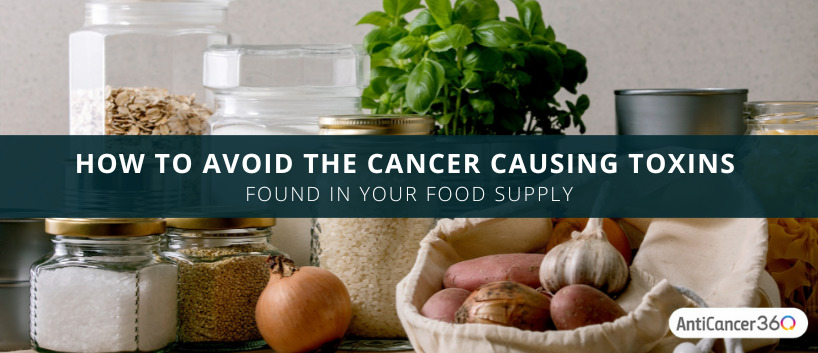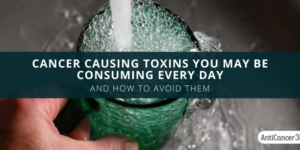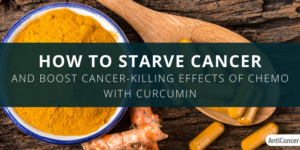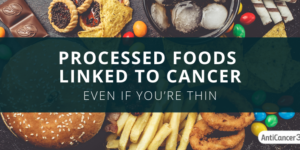If you’re perusing this article it is likely that you or a loved one has been struggling with cancer and you are looking for answers on how this happened and what to do about it. You’re not alone!
By today’s statistics, it is anticipated that about 40% of people in the United States will be diagnosed with cancer in their lifetime [1]. It’s the 2nd leading cause of death in the US [2]. It all sounds pretty scary, but this article is one of many to help you navigate the complex world of information surrounding this diagnosis.
Cancer Is Mostly Environmental, Less Due To Genetics [3]
I know, that probably sounds shocking to many people. Much talk in the cancer world is around genetic causes and many don’t realize just how important lifestyle choices and the environment we live in are to developing cancer. We can be exposed to cancer causing toxins (carcinogens) from things like smoking, drinking alcohol, working in industries that use certain chemicals, getting infections from certain viruses, or simply by eating food and drinking water! In fact, some of the genetic factors associated with cancer relate to a poor ability to detoxify carcinogens that damage cells and lead to the biological changes that create cancer [4].
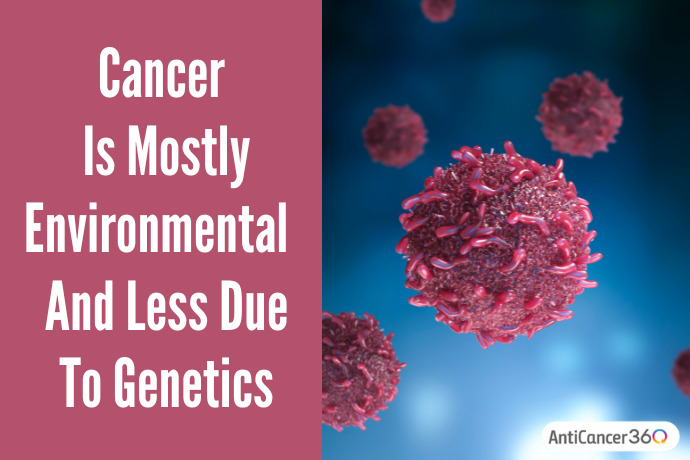
This article is going to focus on one of the most insidious causes of cancer, the one people often ignore and know the least about, the carcinogens found in our food. Whether you are trying to prevent cancer or are facing an advanced cancer diagnosis, this article will teach you the essentials for avoiding and eliminating said toxins.
All toxins in this article are confirmed to be a risk for cancer in the research and are listed on the “15th Report on Carcinogens” put out by the US Department of Health and Human Services [5].
To learn more about the cancer causing toxins found in drinking water, check out this other article we wrote.
Toxins Can Form with High Heat Cooking Methods
It’s not always about toxins that have slipped into our food supply (more on that later), but how food is prepared is a major contributor to forming cancer causing toxins.
Acrylamides: These are formed from high heat cooking of high carbohydrate foods. Think of any starchy foods that get browned when cooked (like the crust of bread) [6],[7]. They have been confirmed to cause cancer in animal models and are likely a concern for humans.
Examples: (chips, french fries, breakfast cereals, pastries, cookies, crackers, breads, toasted nuts and peanuts, coffee, cocoa, etc.)
Hydroxymethylfurfural (HMF): These are formed from high heat cooking of high carbohydrate foods (see above examples) and meats (all beef, fish, pork, chicken, lamb, etc).
Polycyclic aromatic hydrocarbons (PAHs) and Heterocyclic amines (HCAs): Primarily formed from grilling or smoking meats, where smoked meats have been shown to have the highest levels [8].
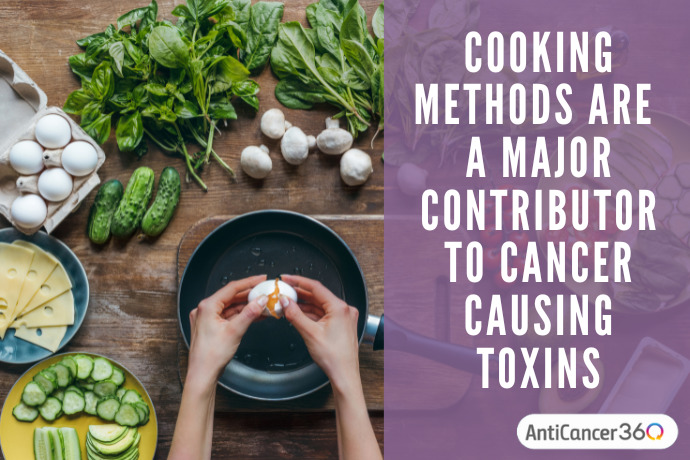
Solutions to Consider:
1) Minimize eating the worst offending foods:
- Processed or smoked meats (sausages, bacon, deli meats)
- Foods cooked at very high heat/ anything that is burnt, charred, browned
2) Avoid grilling, broiling, or frying. Instead use poaching, pressure cooking, baking or roasting at lower temperatures, or slow cooking in a crock pot or slow cooker.
3) If using high heat methods of cooking meats, opt for medium rare and flip the meat often to minimize formation of these substances [9].
4) Add spices, fruits, and polyphenols to your meats to prevent these compounds from forming:
- Rosemary [10]
- Turmeric (see section on heavy metals below before using turmeric)
- Garlic
- Onions
- Cherries
- Virgin Olive Oil
- Lemon juice
- Beers (as a marinade)
- Red wine (as a marinade) [11]
Ditch the Non-Stick Cookware
These carcinogens are found on various types of non-stick cookware. It’s not just the teflon based non-stick products that are an issue. Any non-stick pans, surfaces, or utensils.
- Perfluorocarbons (PFCs)
- Perfluorooctanoic acid (PFOA) – Also found in food packaging (see below)
- Tetrafluoroethylene (Teflon)
Solutions to Consider: Switch to steel, cast iron*, and glass for cooking. Use metal/steel or wood based cooking utensils instead of rubber or plastic versions.
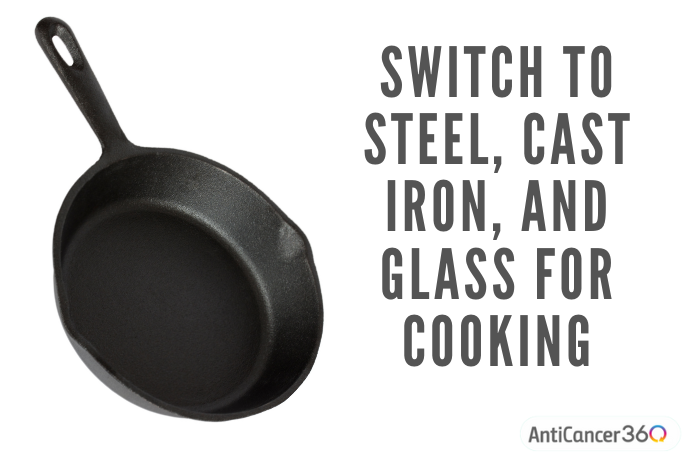
*Be careful with cast iron, however. Newer ones can be produced with a glaze that contains lead or cadmium (both are carcinogens). Your best bet is to find an old one and test it for lead (people used to use cast iron pans to melt down lead for ammunition, so knowing the origin of the pan and what it was used for is pertinent) [12].
Minimizing Aflatoxins In Your Food
Aflatoxin is considered the most potent natural carcinogen known [13]. It is produced by certain species of molds that can infect our food supply, especially things that are stored for long periods. It would be wise to limit their consumption, especially if liver or lung cancer is the concern [14].
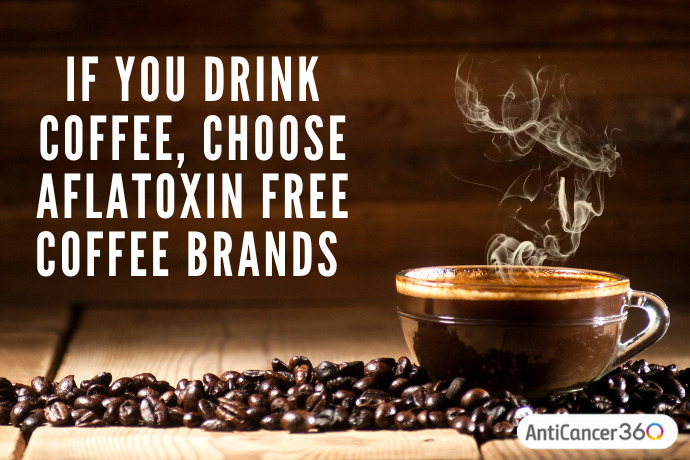
Examples: corn/maize, wheat, peanuts, pistachios, brazil nuts, dried fruits (esp. figs), barley, rye, alcohol, coffee, dairy (esp. aged/hard cheeses), dry-cured meats, dried bulk spices, and meats from animals that ate contaminated grains.
Solutions to Consider:
-
- Avoid the above crops as much as possible, especially corn/maize as it has the highest contamination levels and frequency. Something like fresh corn on the cob is not going to be an issue compared to corn that was dried, sat around in storage, and used to make processed corn products.
- Maranatha is one of the few peanut butter companies that has an aflatoxin free products.
- Eat pasture raised, wild caught, and 100% grass-fed (grass finished) meats only, as these animals are not feeding on contaminated grains like their conventional counterparts.
- Soak, sprout, or ferment the above crops before you eat them to reduce aflatoxins [15]. For example, if you want to eat wheat bread, you can start a sourdough ferment at home, which will reduce the toxins, and give you delicious homemade sourdough bread.
- Choose aflatoxin free coffee brands if you drink coffee (we have no affiliations with any of these companies): Purity Coffee, Lifeboost Coffee, Clean Coffee Co, Top Shelf Grind, Bulletproof Coffee, Natural Force Clean Coffee, Kicking Horse, and more. There are more and more companies aware of this issue and are putting into processes to minimize any mold contamination within their products.
- Consider supplements or foods that can bind to mold toxins with every meal so that you don’t have to get to obsessed with avoiding contaminated foods:
- Activated charcoal capsules
-
- Chlorophyll and chlorophyllin [16] – supplement or comes from green foods.
- Resveratrol – supplement and is also found in red wine. The molds found in alcohol are more of an issue in beer and liquor which are made from contaminated grains. Bonus: A glass of red wine is also a great way to antidote toxins caused from high heat cooking of meats.
- Quercetin – you can get this from eating berries, leafy greens, apples, peppers, tomatoes, red onions, beans, legumes, grapes, and broccoli, so consider combining some of these foods with every meal)
- Turmeric/ Curcumin [17] – see the below section on heavy metals before adding this to your diet.
Avoiding Toxins From Food Containers and Packaging
Bisphenol-A (BPA) and Phthalates: Found in most plastics
- Containers for waters, sodas, juices.
- Containers used for microwaveable meals/ “TV dinners” are even worse as they are heated, which releases more BPA.
Styrene: comes from styrofoam and plastic containers. One of the worst offenders is a hot beverage or soup in a styrofoam or plastic cup as the heat melts the styrofoam right into what you’re consuming. Styrene has also been used as a food additive until it was recently banned.
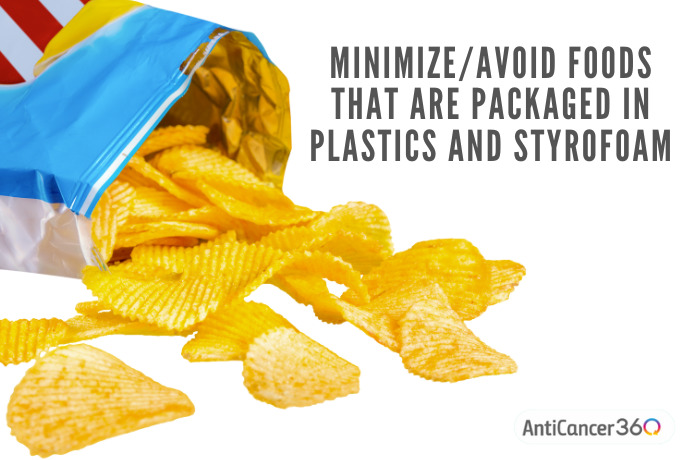
Perfluorooctanoic acid (PFOA): High amounts found in microwave popcorn bags, fast food wrappers, candy wrappers, and pizza box liners. It is used to prevent things from sticking to the paper used in these packaging products.
Solution to Consider:
- Minimize eating foods from take-out and to-go containers
- Try to avoid foods that are packaged in plastics and styrofoam
- Minimize junk food, fast food, and processed foods
- Eat mostly a whole foods diet!
Avoiding Carcinogens In Processed Foods
Nitrites/Nitrates: These might have a link to higher rates of colon cancer. They are particularly found in deli meats, sausages, bacon, and other processed meats as a preservative. Even celery salt in the “no nitrate/nitrite added” or “uncured” products contains nitrates and nitrites (sometimes more than the regularly cured conventional versions!) [18] Interestingly, nitrates are also found in many vegetables. So what’s the deal? It turns out, nitrates can be turned into nitrites by gut bacteria. Nitrites will react with amino acids (protein fragments) to form N-nitroso compounds (NOCs). It is these NOCs that are what actually trigger cancer processes. They are formed in the processing of meats especially because of the high amount of protein. It also appears that vegetables contain antioxidants that prevent the formation of NOCs. As a result, eating vegetables or eating them alongside fresh meats has a protective effect against NOC formation [19].
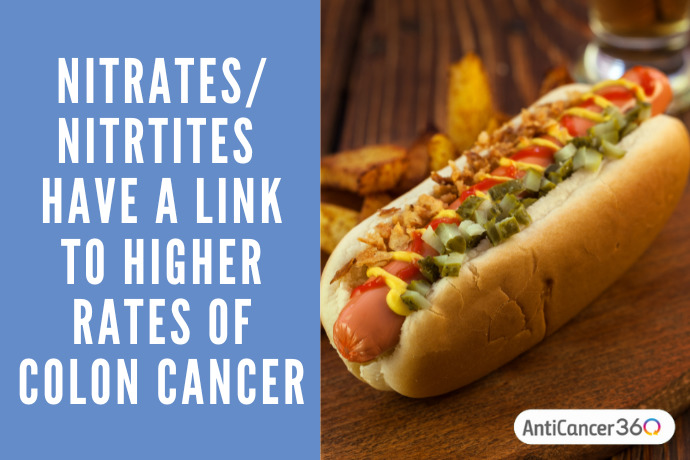
Artificial Flavors: often these compounds are not listed as their true names but simply as “artificial flavors” – benzophenone, ethyl acrylate, methyl eugenol, myrcene, pulegone, pyridine, and styrene. These seven have all been recently banned due to their carcinogenicity [20] but it seems reasonable to continue to be skeptical of this food additive class.
Solutions to consider: Avoid processed meats (bacon, sausage, deli meats) and processed foods. Focus on a whole foods diet and always try to combine vegetables with any meats that are consumed.
Avoiding Heavy Metals In Your Foods
These known carcinogens can creep into our food from many sources:
- From soil around old homes from leaded paint, leaded hoses used to water gardens, and lead found in the water supply used to water gardens can all introduce this toxin into your home grown produce.
- Cooking spices are often contaminated in the milling process or to make them look better for market; especially ginger, turmeric, oregano, and thyme as these have been tested as the worst offenders.
- Cocoa/chocolate almost always contains lead and/or cadmium based on the region it was grown in or its processing.
- Teas are often contaminated through their processing.
- Many supplements are poorly regulated for heavy metals; especially fish oils, turmeric powders, ashwagandha powders, protein powders [21], greens powders, kelp, green tea [22].
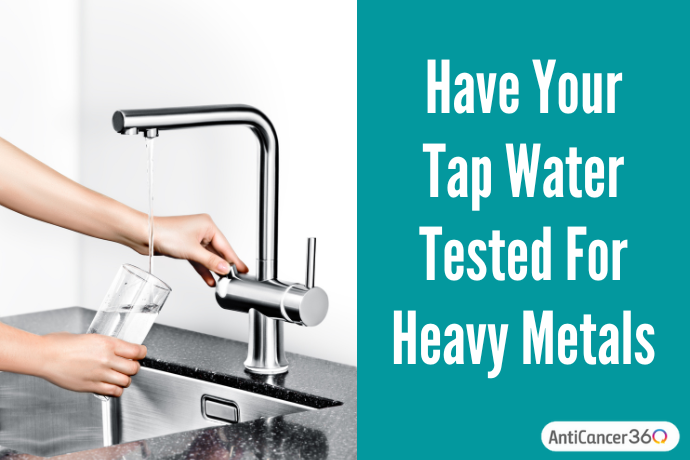
Solutions to consider:
- Garden lead free: Test your soil before creating a garden or at least keep the garden away from the house if you live in an older home. Buy lead free hoses. Have your tap water tested for heavy metals or get a whole house water filter.
- Use fresh spices that have a lower risk of contamination, or spices that have been tested free of heavy metals. Consumer reports put together a great list based on their testing [23].
- Avoid cacao/chocolate in general and use a list of safer chocolate products such as this one by Consumer Reports [24]. It may be easier to simply avoid chocolate in general.
- Use trusted supplement brands that are testing their raw ingredients and their final products for heavy metals. You will likely need to ask a professional in the alternative medicine world who is aware of this issue with supplements.
Pesticide & Herbicide Residues May Increase Cancer Risk
There is much debate on whether residues of pesticides or herbicides in our food can cause cancer. Many of these chemicals which have been linked to cancer are a problem for the people who work with them (e.g. the farmers). By the time food gets to your plate there are varying levels of residues.
Research has not demonstrated a causal link between cancer and consuming foods with these residues, primarily because it is incredibly difficult to find a population of people who are not exposed to these chemicals daily. To be extra cautious it makes sense to avoid the food crops that have been tested to have the highest contamination levels of these compounds.
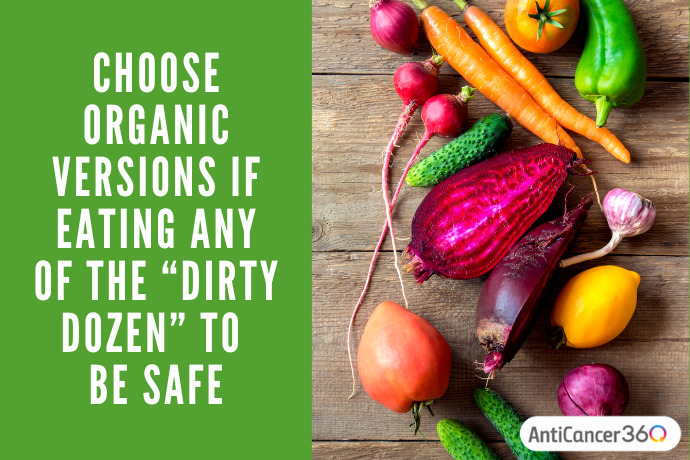
The environmental working group regularly tests foods to keep an updated list of the worst offenders, which they refer to as the Dirty Dozen and Clean Fifteen [25]. Choose organic versions if eating any of the “Dirty Dozen” to be safe and don’t worry about buying generic versions of the others.
There Appears to be No Safe Level of Alcohol Consumption
We all know we shouldn’t drink much alcohol for better health. Excess consumption has been linked to a host of disease processes. Alcohol itself is a known carcinogen and it turns into acetaldehyde when being broken down in the liver, which is highly likely a carcinogen.
Low consumption of alcohol is considered 1 serving/day for women and 2 servings/day for men, but the scientific community is starting to see that even this is too much [26]. Furthermore, many alcohols are produced from grains or sugar cane that might have aflatoxin contamination (especially beer).
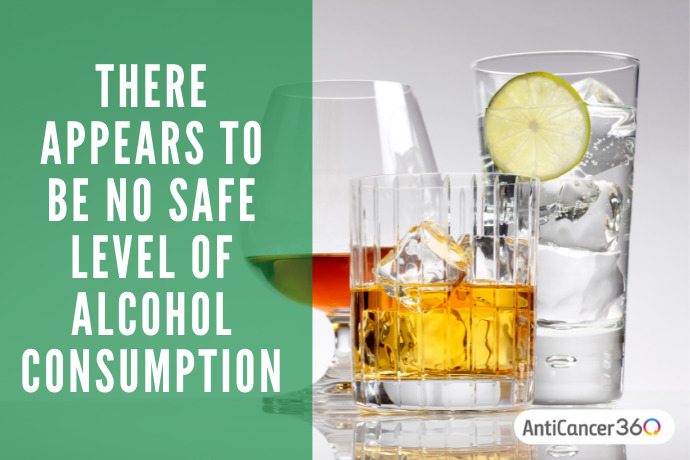
Solution: Save it for the rare occasion, if at all. If you’re going to have a beer, consider having a sour style beer as the lactic acid fermentation that makes it sour has also been shown to decrease aflatoxin. The high levels of resveratrol in red wine can be beneficial, so consider red wine whenever having a celebratory glass.
Simplify Your Diet To Avoid Toxins
Start with a foundation of a whole foods diet. This means avoiding as many processed foods as possible. This will eliminate many of the contaminants in the food supply.
If you grow your own food make sure to test your soil and not introduce toxins into your own food supply.
Eat locally and build relationships with your local farmers so you know what they are doing to grow safe foods. Find out if they are aware of heavy metals and if they are using safer herbicides and pesticides.
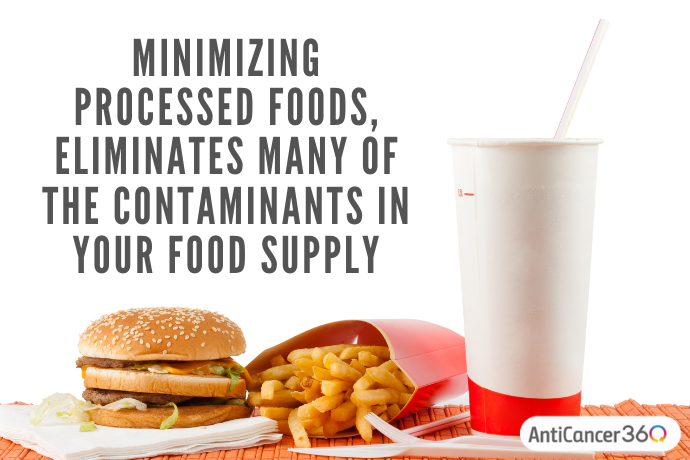
Avoid eating out as restaurants will often use cheap, low quality ingredients that are contaminated and will use cooking practices and packaging that introduce many more toxins.
If you are taking supplements, work with a professional who can recommend the companies that use good practices to avoid heavy metals and other contaminants commonly found in supplements.
Shop with a list of the EWGs guide to least and most contaminated produce:
Minimize meat and dairy consumption and always choose wild, pasture raised, or 100% grass-fed products. Try to use low heat cooking methods as often as possible.
Optimize Your Body’s Detox Systems
Ultimately, you will never be able to eliminate all of the toxins from your food, so it’s super important to make sure the body is eliminating toxins efficiently. There are a number of ways to do this:
Focus your diet on eating foods that help the body eliminate toxins, many of which tend to be great anticancer foods as well:
- Cruciferous vegetables [27]
- Arugula
- Bok choy
- Broccoli
- Brussels sprouts
- Cabbage
- Cauliflower
- Collard greens
- Horseradish
- Kale
- Radishes
- Rutabaga
- Turnips
- Watercress
- Organic apples (due to their high pectin and quercetin content)
- Alliums help with detox and are cancer preventive [28]
- Onion
- Garlic
- Leek
- Chinese chive
- Scallion
- Cook with heavy metal free turmeric and ginger. Using fresh versions of these spices is usually easier than hunting down uncontaminated dried versions.
- Eat antioxidant rich foods as they help stimulate detoxification
- Beets
- Wild blueberries
- Pomegranate
- any richly pigmented blue, purple, red, fruits or vegetables
- Eat a high fiber diet (lots of fruits and vegetables). Fiber binds to bile salts in the intestines. The liver excretes bile salts for digestion, but also to eliminate toxins, this stuff is full of toxins your body is trying to eliminate. If there isn’t enough fiber around to bind up the bile and excrete the toxins in the stool, you just keep re-absorbing the toxins.
- Consider doing a detox 2-4 times per year. But be weary of gimmicky one or two week long detox fads. It’s best to work with a professional such as a naturopathic doctor or toxicologist who is well versed in environmental toxicity and can guide you through a proper detox protocol. There is a very specific process for safely detoxifying these dangerous compounds and if done improperly you could do more harm than good, or simply be wasting your time and money.
So if you or a loved one are dealing with cancer, avoiding food toxins and optimizing your detoxification system can be an important part of your overall program. This is an important aspect of fighting cancer from every possible angle.
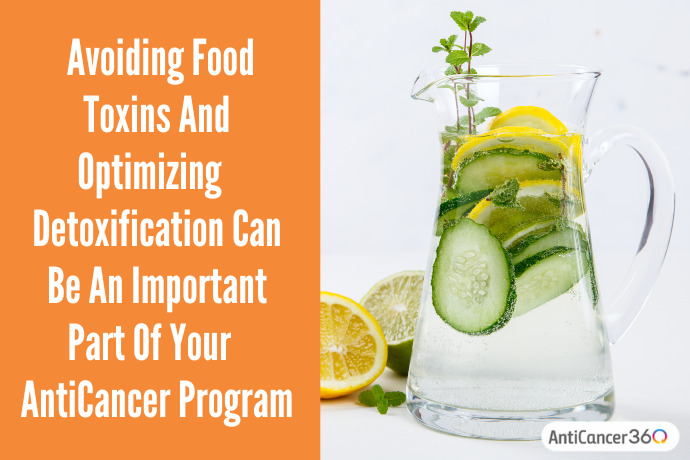
And if you’d like to learn more about the AntiCancer360 approach and see if we can help you… please watch our free online webinar to learn more. At the end, you’ll be able to schedule a free call with someone from our team so that we can discuss your case in more detail.
Derrick Schull is a naturopathic doctor with a decade of experience helping others integrate the best natural and alternative interventions to meet their health goals. He has extensive experience in anticancer strategies, gut health, and brain health. As part of the AntiCancer360 team, Dr. Derrick coordinates your case-specific research, lab tests, oncology treatment info, and supplement-drug interactions to design a comprehensive program that’s tailored to your particular case.

